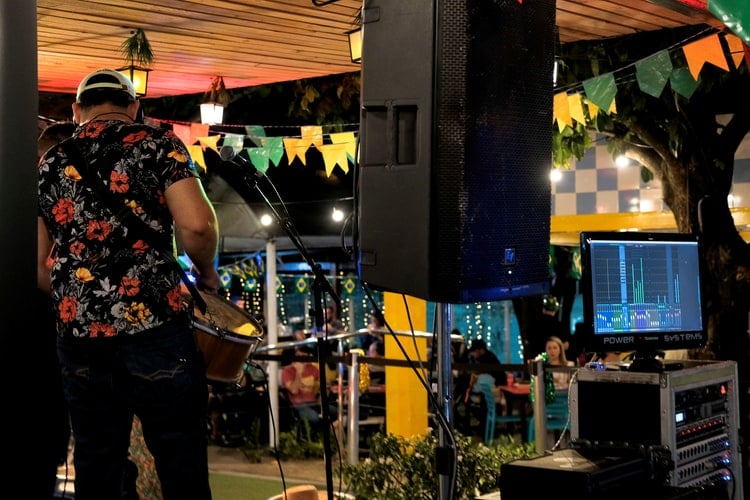What do Ozzy Osborne, Phil Colins, Bono, Bob Dylan, Will.I.Am and Huey Lewis have in common? If you guessed that they all have tinnitus, you would be correct.
Tinnitus is a phantom ringing, roaring, hissing, whistling, buzzing or humming sound with no external sound source. Tinnitus is fairly common among the general population, affecting approximately 10-15% of people, but for musicians, this number is much higher: between 30% and 50% by some estimates.
What Causes Tinnitus?

Inside the ears are tiny hair cells called stereocilia. These cells are responsible for converting soundwaves into electrical energy that travels via the auditory nerve to be interpreted as sound.
When dangerously loud sounds pass through the ears, it can cause damage or even destroy these cells. This damage can cause noise-induced hearing loss or cause cells to misfire, triggering tinnitus.
Why Musicians Are Especially at Risk
Sounds over 85 dB can cause permanent damage to the auditory system over time. Noises that are 85 dB – about the sound of passing highway traffic – cause damage after eight hours or more of exposure. But sounds at 120 dB – the average decibel output of a rock concert – can cause immediate, permanent damage.
And musicians aren’t just more likely to experience tinnitus; tinnitus also tends to take a greater emotional toll on people whose livelihood is music.
Because tinnitus can negatively affect one’s perception of sound and music, it can threaten a musician’s career. For this reason, musicians are also more likely to suffer in silence than reach out and seek help.
What One Musician Had to Say
Huey Lewis of Huey Lewis & the News chose to speak out about his experience with tinnitus caused by Meniere’s disease.
“There was literally a roaring tinnitus in my head. I just laid in bed. There was nothing I could do. I’d just lay in bed and contemplate my demise,” Lewis said in an interview with Rolling Stone.
Getting Help for Tinnitus
While there is no cure for tinnitus, there are options for managing the condition. Sound therapy and cognitive-behavioral therapy have both been shown to be extremely helpful.
Tinnitus can also be prevented by wearing earplugs at 1904 Music Hall or when exposed to dangerously loud sounds.
For more information about tinnitus management or to schedule an appointment with tinnitus experts, call The McCoy Institute of Hearing and Balance.